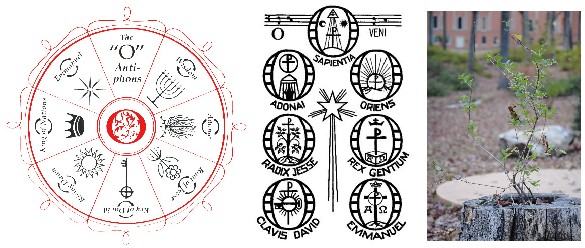1250AFC121412 The O Antiphons
Read it online here, please.
You may have heard of something called “The O Antiphons.” If not, you’ve probably sung a hymn called “O come, O come Emanuel.” They are related in subject and content, and are sung during this time of year – Advent – during the period called “the Octave of Christmas” which is December 17 through 24 – a period of 8 days, hence octave. The first 7 days of the Octave of Christmas correspond to the 7 O Antiphons; the eighth day of the Octave, December 24, is the Christmas Vigil. The words in these Antiphons are familiar because of the hymn O Come, O Come Emanuel, but the meanings behind them may not be, so we’re going to take a look into the history and meaning of these Antiphons. Each of the antiphons presents insight into the Divinity of the Messiah by recalling descriptive passages of Scripture. There is evidence that they have been in use in the Church since the Fifth Century. By the Eighth Century, they were in common use in most Rites of Liturgy. They describe for us seven ways by which the Lord “comes to us” in Advent by telling us how he will be revealed to humanity. The Antiphons are in Latin, so that will be presented first, then the English translation, then the date in December when the Antiphon is sung.
Normally they are recited or sung in the evenings as part of an evening prayer service. When I listen to them, I am reminded of Christmas 1968. A friend at Metropolitan State College, Mary Jane McBride as I recall, invited me to go to Vespers at a nearby Seminary. I was already contemplating conversion from Baptiterian to Catholic, and that experience moved me miles and mile farther down that road. It was a true Mountain-Top Experience – exhilaration, a feeling of deep spiritual connection, and the glowing-shivers (ya know wuddamean?) … I can still feel that today as I remember it. So this one’s for Mary Jane and everyone who’s taken a friend to the Mountaintop because now, when we say the word GOD, we understand we are naming The Holy Trinity – Father, Son, and Spirit – who have existed together eternally. And it is God who is praised in the O Antiphons:
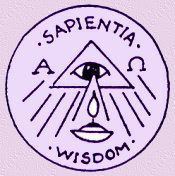 O SAPIENTIA – O Wisdom December 17: Wisdom was with God at Creation (Proverbs 13:19) and God’s Wisdom cannot be surpassed (Isaiah 40:13-14). God have created all things and all times with only the Wisdom of his Word. O Wisdom, who came from the mouth of the Most High, reaching from end to end and ordering all things mightily and sweetly: come, and teach us the way of prudence.
O SAPIENTIA – O Wisdom December 17: Wisdom was with God at Creation (Proverbs 13:19) and God’s Wisdom cannot be surpassed (Isaiah 40:13-14). God have created all things and all times with only the Wisdom of his Word. O Wisdom, who came from the mouth of the Most High, reaching from end to end and ordering all things mightily and sweetly: come, and teach us the way of prudence.
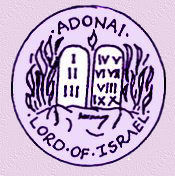 O ADONAI – O SUPREME LORD December 18: The root ADON means steward-administrator, Master, Lord as a respectful title indicating authority and power. Adding –ai elevated the meaning to a superlative as “Lord of All,” “Supreme Authority,” or “Ultimate Power.” The common expression “Supreme Being,” falls far short of the meaning of Adonai, a name commonly used in Hebrew Scripture to represent the name YHWH. See Exodus 3:1-6.
O ADONAI – O SUPREME LORD December 18: The root ADON means steward-administrator, Master, Lord as a respectful title indicating authority and power. Adding –ai elevated the meaning to a superlative as “Lord of All,” “Supreme Authority,” or “Ultimate Power.” The common expression “Supreme Being,” falls far short of the meaning of Adonai, a name commonly used in Hebrew Scripture to represent the name YHWH. See Exodus 3:1-6.
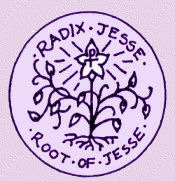 O RADIX JESSE – O ROOT OF JESSE December 19: “A shoot shall grow out from the stump of Jesse and a branch shall grow out of his roots.” I love this verse. The image is of an ancient olive tree cut down after many years because it is no longer bearing fruit as it should. The stump is left and irrigated, cared for, and watched over. Then a shoot, a new olive tree, sprouts from the stump and has the support of the ancient roots beneath it. Read Isaiah 11 with this in mind. It’s another Mountaintop Experience.
O RADIX JESSE – O ROOT OF JESSE December 19: “A shoot shall grow out from the stump of Jesse and a branch shall grow out of his roots.” I love this verse. The image is of an ancient olive tree cut down after many years because it is no longer bearing fruit as it should. The stump is left and irrigated, cared for, and watched over. Then a shoot, a new olive tree, sprouts from the stump and has the support of the ancient roots beneath it. Read Isaiah 11 with this in mind. It’s another Mountaintop Experience.
 O CLAVIS DAVID – O KEY OF DAVID December 20: This is the Key that liberates prisoners, unfetters the chains that bind into death all who walk the Earth. This is the Scepter of Israel. Only this key opens what no human can open, and only this key closes what no human can close. See Isaiah 61:1, Isaiah 42:7, and Luke 4:16-20. This is The Christ of God.
O CLAVIS DAVID – O KEY OF DAVID December 20: This is the Key that liberates prisoners, unfetters the chains that bind into death all who walk the Earth. This is the Scepter of Israel. Only this key opens what no human can open, and only this key closes what no human can close. See Isaiah 61:1, Isaiah 42:7, and Luke 4:16-20. This is The Christ of God.
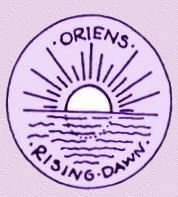 O ORIENS – O RISING DAWN December 21: O Radiant Dawn of the east, brightness of light eternal, and sun of justice: come, and enlighten those who sit in darkness and in the shadow of death. See Isaiah 9:2 and Matthew 4:13-17. God, who are Light, as dawned upon the Earth and dispelled the darkness of death as Light is victorious over the shadows of night. Just as the celestial sun gives warmth, energy, light, and life to the earth, so the Sun of Justice spreads the Light of God over all creatures. And so our eyes and hearts and minds look to the east for the Light of the Nations.
O ORIENS – O RISING DAWN December 21: O Radiant Dawn of the east, brightness of light eternal, and sun of justice: come, and enlighten those who sit in darkness and in the shadow of death. See Isaiah 9:2 and Matthew 4:13-17. God, who are Light, as dawned upon the Earth and dispelled the darkness of death as Light is victorious over the shadows of night. Just as the celestial sun gives warmth, energy, light, and life to the earth, so the Sun of Justice spreads the Light of God over all creatures. And so our eyes and hearts and minds look to the east for the Light of the Nations.
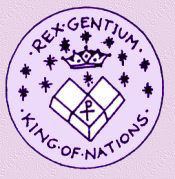 O REX GENTIUM – O KING OF THE NATIONS December 22: O King of the Gentiles and their Desired One you are the Desired of all nations (Haggai 2:7), you are the cornerstone (Isaiah 28:16) that binds the two into one (Ephesians 2:14). Come, and bring wholeness to man whom you fashioned out of clay (Genesis 2:7). In the King of Glory disciple is united to Christ (John 17:01-22), every living soul will acknowledge God’s reign (Isaiah 45:23, Romans 14:9-12 Philippians 2:9-11)
O REX GENTIUM – O KING OF THE NATIONS December 22: O King of the Gentiles and their Desired One you are the Desired of all nations (Haggai 2:7), you are the cornerstone (Isaiah 28:16) that binds the two into one (Ephesians 2:14). Come, and bring wholeness to man whom you fashioned out of clay (Genesis 2:7). In the King of Glory disciple is united to Christ (John 17:01-22), every living soul will acknowledge God’s reign (Isaiah 45:23, Romans 14:9-12 Philippians 2:9-11)
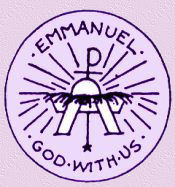 O EMANUEL – O EMANUEL, GOD WITH US December 23: O Emmanuel (Isaiah 7:14), God with us, our King and lawgiver (Isaiah 33:22), the expected of the nations and their Savior: come to save us, O Lord our God. The hymn, already mentioned – O come, O Come Emanuel – is a reworking of the O Antiphons: O Come, Emanuel, Rod of Jesse, Day-Spring, Key of David, and Lord of Might for example. The hymn itself appears to have been written in the twelfth century in Latin (Veni, Veni Emanuel) and was based on eighth-century arrangements of the 7 O Antiphons. As you can see, this has been around a long time, and – taken together – these antiphons give us a Biblical encapsulation of the Advent season. In several sites I explored for this post, researchers also mentioned that there is a specific order for these seven antiphons. If start at the seventh and go backwards to the first, and you take the first letter of each title of Christ you get E (Emanuel), R (Rex Gentium), O (Oriens), C (Clavis David), R (Radix Jesse), and S (Sapientia). Looking at the letters you get E R O C R A S. This forms two Latin words: Ero cras. That phrase somewhat freely translated means “Tomorrow, I will be there,” or “I will come tomorrow.” That pretty well matches the whole theme of advent!
O EMANUEL – O EMANUEL, GOD WITH US December 23: O Emmanuel (Isaiah 7:14), God with us, our King and lawgiver (Isaiah 33:22), the expected of the nations and their Savior: come to save us, O Lord our God. The hymn, already mentioned – O come, O Come Emanuel – is a reworking of the O Antiphons: O Come, Emanuel, Rod of Jesse, Day-Spring, Key of David, and Lord of Might for example. The hymn itself appears to have been written in the twelfth century in Latin (Veni, Veni Emanuel) and was based on eighth-century arrangements of the 7 O Antiphons. As you can see, this has been around a long time, and – taken together – these antiphons give us a Biblical encapsulation of the Advent season. In several sites I explored for this post, researchers also mentioned that there is a specific order for these seven antiphons. If start at the seventh and go backwards to the first, and you take the first letter of each title of Christ you get E (Emanuel), R (Rex Gentium), O (Oriens), C (Clavis David), R (Radix Jesse), and S (Sapientia). Looking at the letters you get E R O C R A S. This forms two Latin words: Ero cras. That phrase somewhat freely translated means “Tomorrow, I will be there,” or “I will come tomorrow.” That pretty well matches the whole theme of advent!
And so, Beloved, there we have it, the Seven O Antiphons. I have many personal reason for loving the hymn, and I have enjoyed listening to the Benedictine chant version of the Antiphons. You can listen to them too, if you like, and get a deeper sense of the power of the scriptural insights the Antiphons carry.
This coming Sunday, December 16 is the day before the Octave of Christmas. It is often called “Gaudete Sunday (gow-DEH-teh). The Introit for Gaudete Sunday is taken from Philippians 4:4,5: “Gaudete in Domino semper” (“Rejoice in the Lord always”). On this Sunday, the Vestments can be rose-colored rather than purple as is usual during a penitential season (Lent and Advent). The rose color reminds us we have passed the midpoint of the season and things are brightening up as is indicated by the entrance (Introit) verse which says, “REJOICE!”
Rejoice with one another, Beloved. Pray for, with, and about one another. Be kind to one another, and be especially kind to strangers. Remember what He said: “Whatever you do to the least of these…” and “I AM coming tomorrow.”
Whatever, whenever, wherever, whoever, however, if ever, forever — at your service, Beloved!
chick

